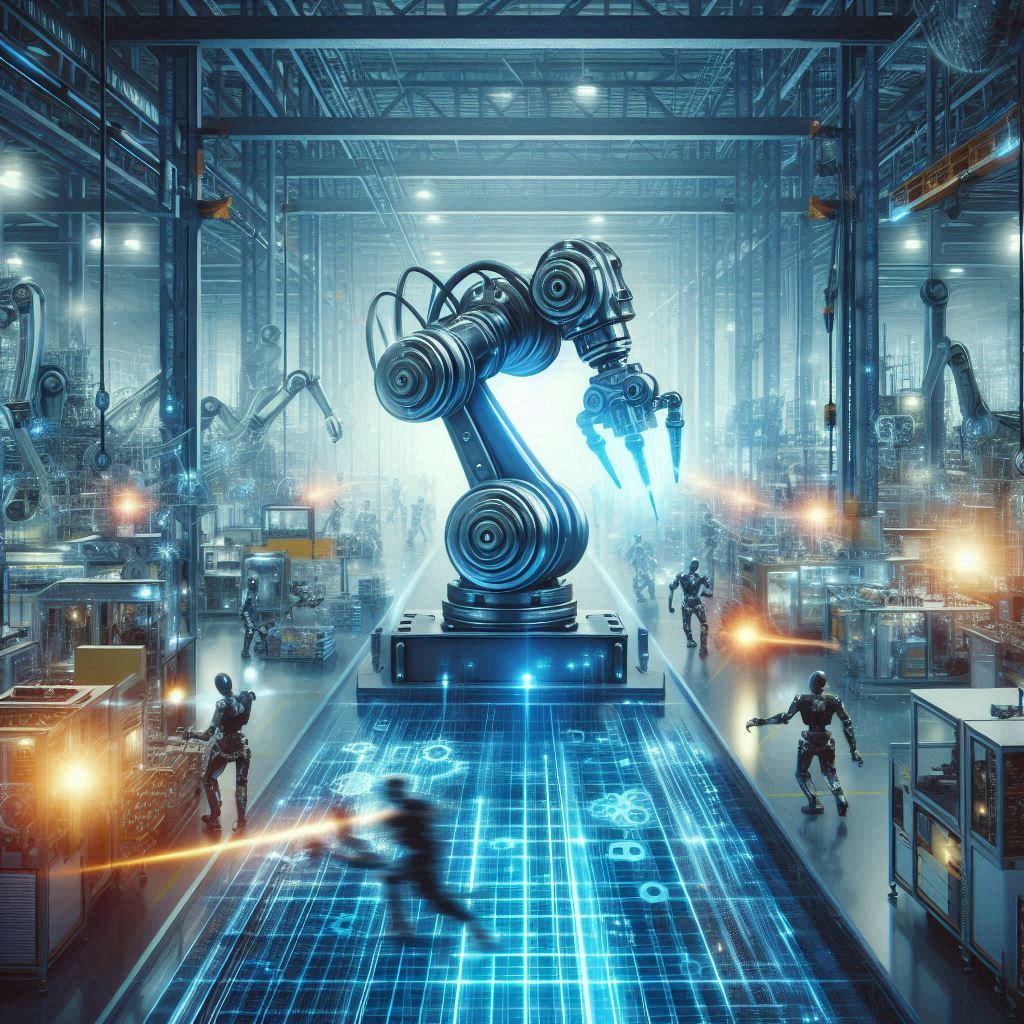In the dynamic world of manufacturing, robotics is playing a pivotal role in transforming processes and driving efficiency and precision. The integration of advanced robotic systems has revolutionized the industry, bringing forth numerous benefits. In this article, we will explore the impact of robotics on manufacturing and how it enhances efficiency and precision.

Enhancing Efficiency with Robotics
- Automating Repetitive Tasks: Robots excel at performing repetitive tasks with consistency and speed. By automating these tasks, manufacturers can significantly reduce production times and increase overall efficiency. This allows human workers to focus on more complex and creative aspects of production.
- 24/7 Operations: Unlike human workers, robots can operate around the clock without the need for breaks or rest. This continuous operation boosts productivity and ensures a steady output, meeting the growing demands of the market.
- Reduced Downtime: Robotics systems are designed for high reliability and minimal maintenance. Predictive maintenance powered by AI enables timely interventions, reducing downtime and keeping production lines running smoothly.
- Streamlined Supply Chain: Robots enhance supply chain efficiency by automating tasks such as sorting, packaging, and transportation. This automation reduces errors, optimizes inventory management, and speeds up the delivery process, resulting in a seamless supply chain.
Achieving Precision in Manufacturing
- High-Accuracy Assembly: Robots are capable of performing assembly tasks with high precision, ensuring that each component is placed accurately. This level of precision minimizes defects and improves the overall quality of the final product.
- Consistent Quality Control: Robotic systems are equipped with advanced sensors and vision systems that enable real-time quality control. They can detect defects, measure dimensions, and ensure that products meet stringent quality standards consistently.
- Precision Welding and Painting: In processes such as welding and painting, robots deliver superior precision and consistency. They can perform these tasks with exact measurements, resulting in uniform welds and flawless finishes, reducing the need for rework.
- Microscale Manufacturing: Robotics technology is advancing to enable microscale manufacturing, where robots can handle tiny components with extreme precision. This capability is crucial in industries such as electronics and medical devices, where accuracy at the microscale level is essential.
The Future of Robotics in Manufacturing
The future of robotics in manufacturing holds exciting possibilities. Here are some trends and developments to watch for:
- Collaborative Robots (Cobots): Cobots are designed to work alongside human workers, enhancing productivity and safety. They are equipped with advanced sensors and AI algorithms that enable them to collaborate seamlessly with humans, creating a more efficient and flexible production environment.
- AI-Driven Robotics: The integration of AI and machine learning with robotics will drive further advancements. AI-driven robots can learn from data, adapt to new tasks, and optimize their performance, making them even more valuable assets in manufacturing.
- Smart Factories: The concept of smart factories, powered by the Industrial Internet of Things (IIoT), will see widespread adoption. Robots in smart factories will be interconnected, sharing data and working together to optimize production processes and enhance efficiency.
- Sustainable Manufacturing: Robotics will play a crucial role in sustainable manufacturing practices. Robots can optimize resource utilization, reduce waste, and minimize energy consumption, contributing to a greener and more sustainable manufacturing industry.
Conclusion
The impact of robotics on manufacturing is profound, driving efficiency and precision to new heights. By automating repetitive tasks, reducing downtime, and achieving high-accuracy assembly, robotics is revolutionizing the manufacturing landscape. As technology continues to evolve, the future of robotics in manufacturing holds immense promise, paving the way for smarter, more efficient, and sustainable production processes.
